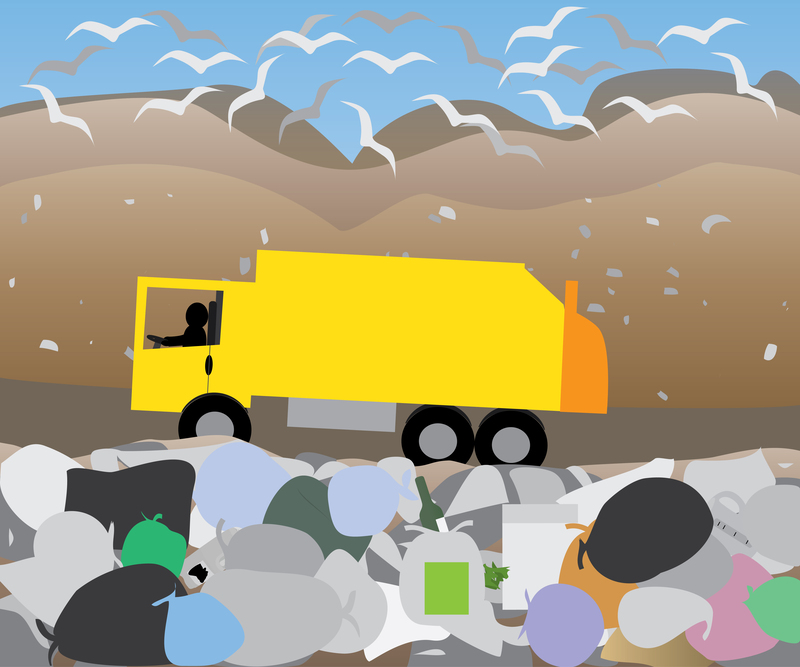What to Do With Damaged or Nonstick Pots and Pans You No Longer Need
Most kitchens contain at least a few aging pots and pans--especially nonstick cookware--that have become scratched, warped, or simply outlived their usefulness. Instead of letting these take up valuable cabinet space, it's time to consider your options. Should you toss them, recycle them, or is there a more eco-friendly or creative alternative? This comprehensive guide covers everything you need to know about responsibly and cleverly dealing with damaged or unwanted cookware.
Understanding When It's Time to Replace Damaged Cookware
Not every ding or scratch means the end for your pots and pans, but there are a few signs you shouldn't ignore. Here's how to recognize the best moment to bid farewell:
- Peeling, chipping, or flaking nonstick coating: If your nonstick pan is shedding its surface, it's time to let it go. Flakes can get into your food, which is concerning even with newer PFOA-free coatings.
- Warped bottoms: A warped pan will cook food unevenly, often burning it in spots while leaving other areas raw.
- Deep rust or corrosion: Rusty stainless steel or aluminum is tough to scrub out and can flake off into food.
- Loose, broken, or melted handles: Handles are crucial for safety. If yours are unreliable, don't risk injuries.
- Loss of nonstick quality: If even eggs stick stubbornly or you notice food is burning consistently, it's time for new cookware.
Pro Tip: Even cast iron, known for its longevity, can become irreparably worn if it develops deep pits or cracks.

How to Safely Dispose of Old Pots and Pans
Are pots and pans recyclable? Yes, but with caveats. Here's what you need to know about disposal:
Check Local Recycling Programs
Most metal cookware is made from stainless steel, aluminum, or copper. Many community recycling programs accept these metals, but nonstick cookware often requires special handling because of the coatings.
- Remove any plastic handles or other detachable parts before recycling. These belong in the trash unless marked as recyclable.
- Bring pots and pans to a local scrap metal yard if your curbside recycling won't accept them. Scrap yards usually take all metal cookware regardless of condition.
- For nonstick pans, check if your municipality accepts them. If not, call the manufacturer--brands like Tefal offer recycling programs or suggestions.
Manufacturer Recycling and Take-Back Programs
Many companies are getting proactive with cookware recycling. Brands like Calphalon and GreenPan occasionally offer recycling incentives or trade-in events. Check your cookware brand's website for details.
Donate If Still Usable
If your pots and pans aren't too badly damaged and still function, consider donation:
- Thrift stores, community kitchens, or shelters often accept gently used cookware.
- Always clean thoroughly before donating--no one wants someone else's burnt food on a pan!
- If the nonstick coating is only scratched on the surface but is not peeling, let the recipient know.
Creative Ways to Repurpose Old Pots and Pans
Before you toss your dented saucepan or worn-out frying pan, think creatively. Numerous upcycling ideas will give your cookware a new lease on life:
Use As Planters
Old pots are perfect for growing herbs, flowers, or succulents. Drill a few holes in the bottom for drainage, fill with soil, and plant away. Painted or decorated pans can become unique highlights for your porch or yard.
Artistic Home Decor
- Turn the bottom of an old frying pan into a rustic clock face with the simple addition of clock hands and a battery pack.
- Paint or decoupage lids and hang them as wall art for a culinary-themed kitchen.
- Hang small pots or mini skillets as whimsical storage for utensils, spices, or plants.
Fun Fact: Chefs often use retired copper pans as wall hangings for a vintage kitchen vibe!
Organizational Uses
- Use a large pot to store garden tools, kitchen gadgets, or even children's craft supplies.
- Repurpose a nonstick cake pan as a catch-all tray for keys and change at your entryway.
Outdoor and Workshop Uses
- Use an old pan over a campfire as an outdoor cooking vessel (make sure the handle is metal).
- Turn a small pot into a mini fire pit for your patio.
- Use battered pans to mix paint or grout when tackling DIY home improvements--the smooth surface makes for easy clean-up.
Potential Dangers of Keeping Damaged Nonstick or Metal Cookware
Keeping and using compromised cookware isn't just inconvenient--it can pose hazards:
- Nonstick coating flakes: If bits of nonstick coating end up in your food, they're not digestible and could cause digestive irritation.
- Metal leaching: Scratched aluminum or copper may leach metals into acidic foods, which long-term can be harmful.
- Burn risks and injury: Loose handles or unstable bottoms can result in burns or spills.
For your safety, always retire cookware at the first sign of true damage.
The Environmental Impact of Old Cookware
Discarding pans in the regular garbage sends them to landfills, where metal can take centuries to degrade and nonstick coatings can pollute soil and water. Properly disposing of old cookware--recycling or repurposing--lowers your household's footprint. Many metals are infinitely recyclable and may be transformed into new useful objects in the future.
Where to Recycle Pots and Pans: A Quick Guide
- Scrap Metal Yards: Accept aluminum, steel, copper--remove plastic and rubber parts.
- Large Retailers: Sometimes run cookware recycling drives--check Home Depot, Sur La Table, or Williams-Sonoma periodically for events.
- Specialty Recycling Centers: Some municipalities have drop-off centers for household goods beyond regular paper/plastics.
- Mail-In Recycling Programs: Call the manufacturer; some will accept old cookware shipped to them for eco-friendly disposal.
How to Prepare Old Cookware for Recycling or Donation
To maximize your cookware's chance of being recycled or donated:
- Clean thoroughly: Scrub off all food residue and grease.
- Disassemble if possible: Remove handles, knobs, or other non-compatible materials.
- Group similar metals: If recycling yourself, sorting aluminum from steel or copper may increase their value at scrap yards.
When to Simply Throw Away Old Cookware
Unfortunately, some nonstick pots and pans aren't accepted anywhere for recycling, especially those with very damaged coatings, plastic parts, or unknown materials. In this case, wrap them in newspaper or other material to protect sanitation workers from sharp edges before placing in the trash.
How to Prolong the Life of New Pots and Pans
If you're replacing old cookware, invest in quality and treat it well to avoid repeating the cycle. Here's how to make your next set last longer:
- Use kitchen tools that won't scratch: Opt for wood, silicone, or nylon with nonstick surfaces.
- Avoid cooking on high heat: Most nonstick pans work best on medium to low heat, which preserves the coating.
- Hand wash when possible: Even if pans are labeled as dishwasher safe, detergents and heat will accelerate wear.
- Dry pans quickly after washing: This prevents rust, warping, and damage to handles.
- Store with protection: Place a cloth or paper towel between stacked pans.
Tip: Register your cookware with the manufacturer if a warranty is offered. You may qualify for free replacements or repairs in the future.

Frequently Asked Questions About Damaged Cookware Disposal
Can nonstick pans go in metal recycling?
Some metal recycling facilities accept nonstick pans if you remove the handles and note the coating type. Always check with your local center first.
What about ceramic-coated cookware?
Ceramic coatings are often safer for landfills but may still inhibit recycling. Check with your recycler or manufacturer.
Are any cookware donation programs tax-deductible?
Yes! Donations to recognized nonprofits like Goodwill or Habitat for Humanity may qualify--ask for a receipt when you donate.
Final Thoughts: Responsible Solutions for Damaged or Unneeded Pots and Pans
Disposing of old nonstick, stainless, or aluminum cookware doesn't have to be wasteful. With a little planning, you can recycle, donate, or repurpose your unwanted kitchen gear, benefitting both your home and the environment.
Choose the most eco-friendly and creative solution that works for your situation--and enjoy a fresher, safer kitchen for years to come. If you've got a great way to reuse old pots and pans, share your idea with friends or online--your upcycling creativity could inspire someone else to avoid the landfill too!
- Recycle metals when possible.
- Donate usable cookware.
- Upcycle for home or garden use.
- Dispose safely when necessary, never illegally dump.
With these sustainable ideas, you'll handle old or damaged cookware responsibly, ensuring a cleaner home and a healthier planet.